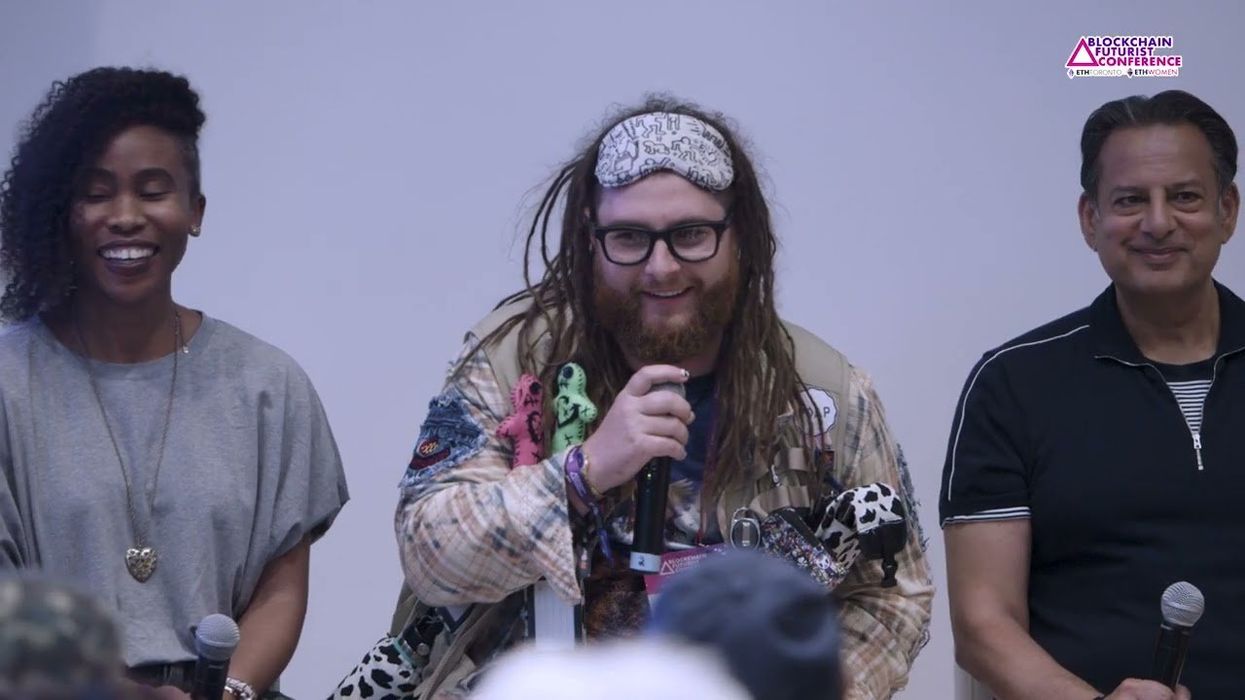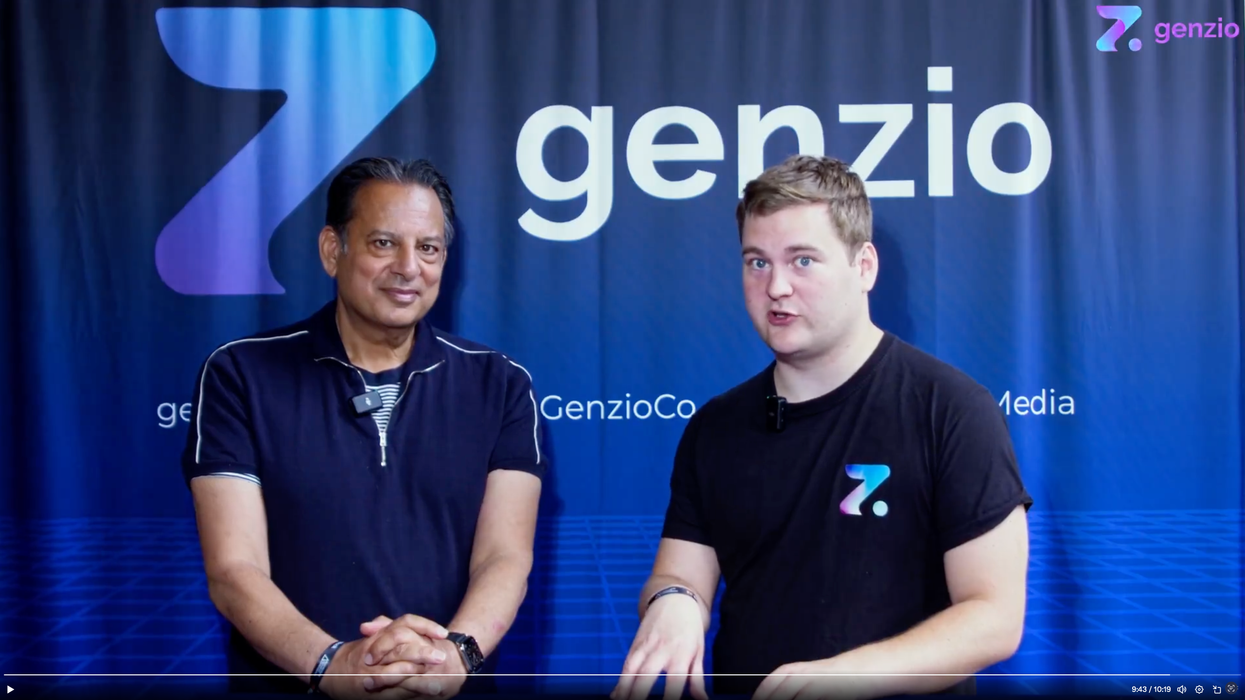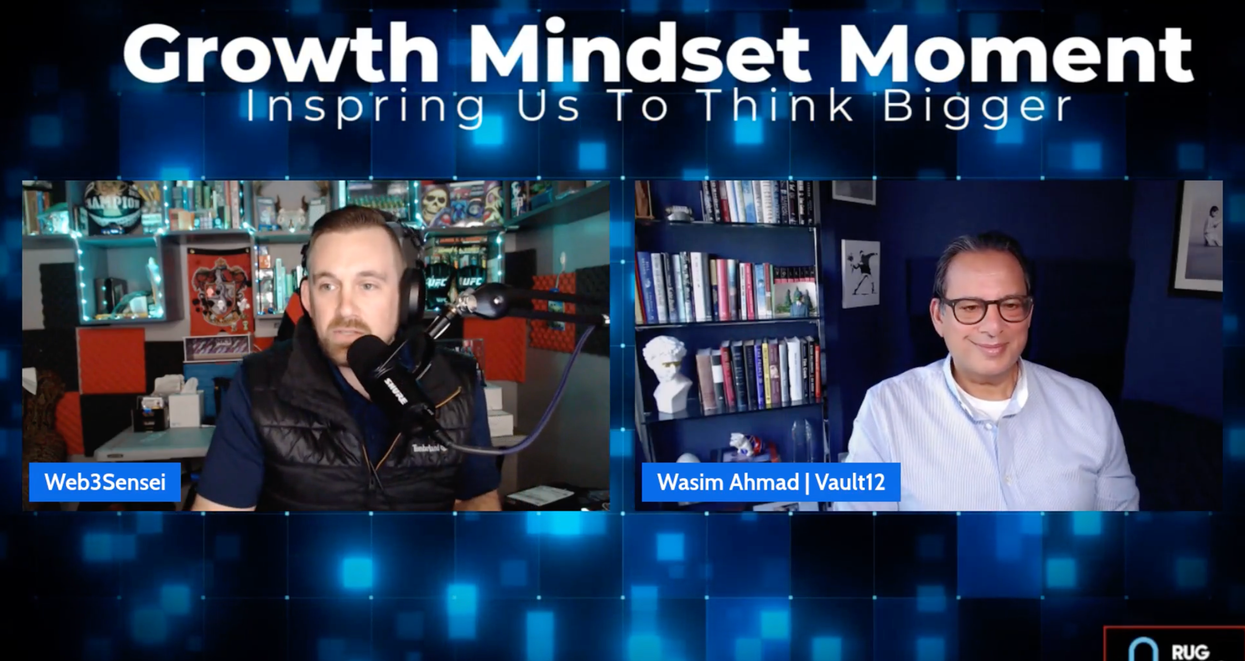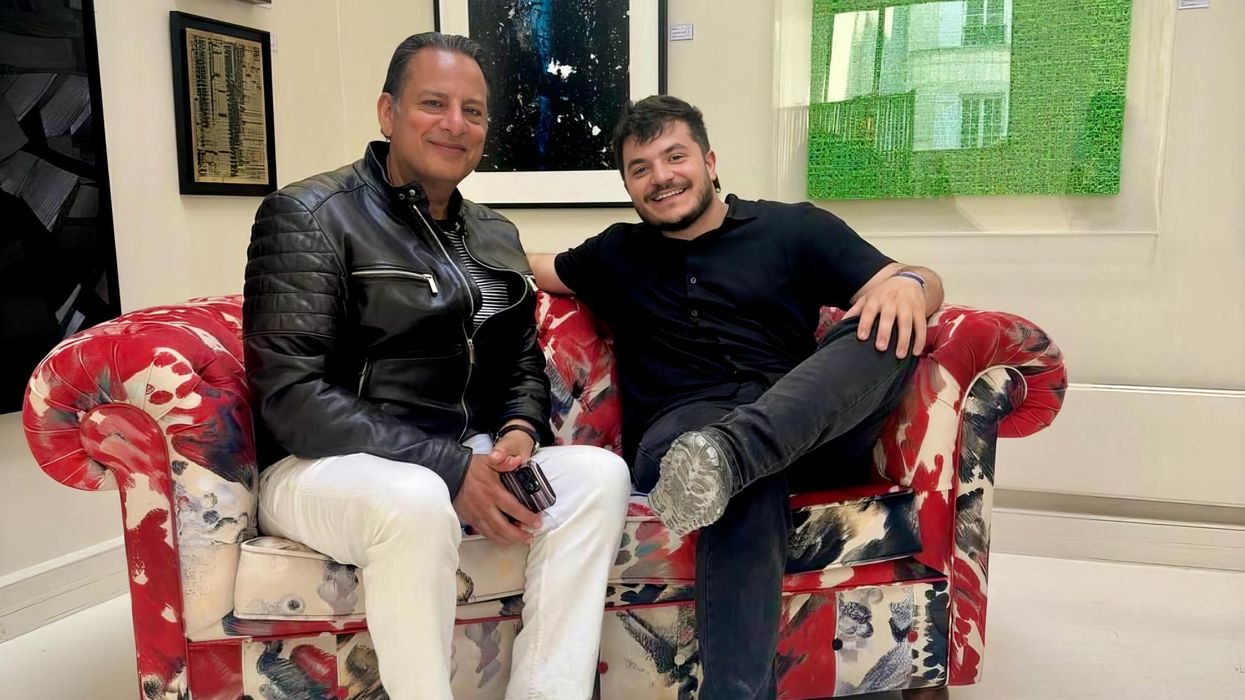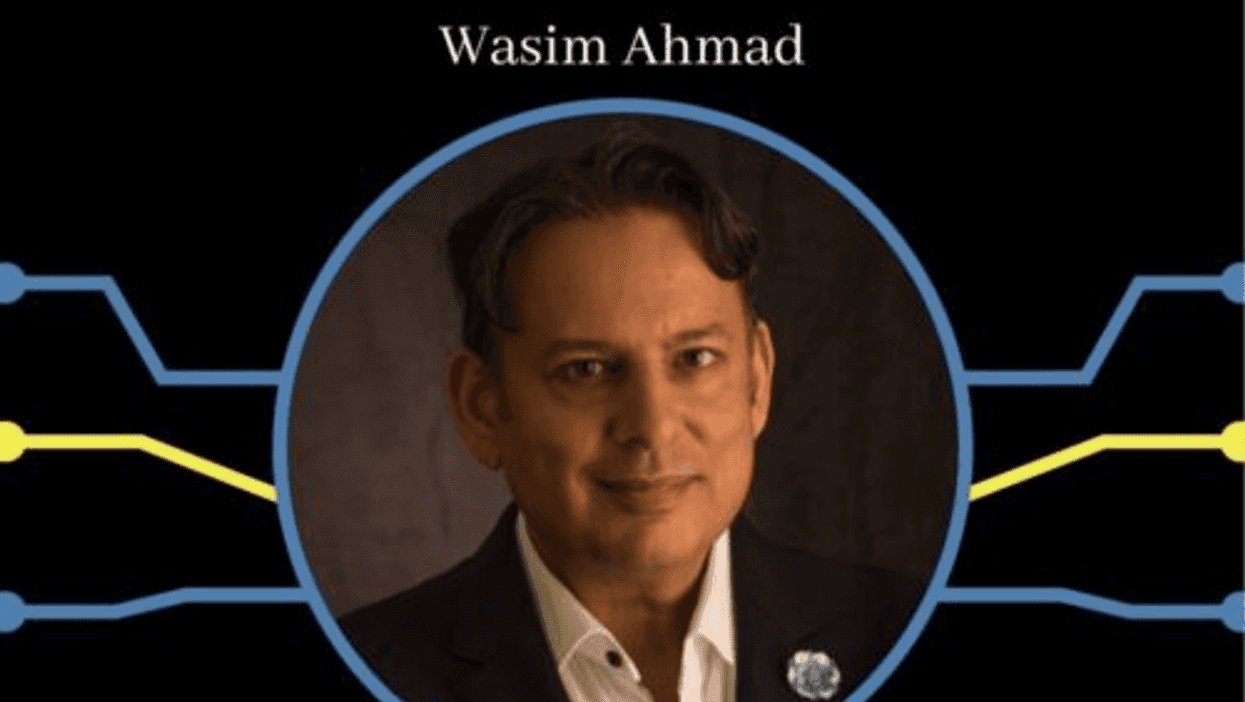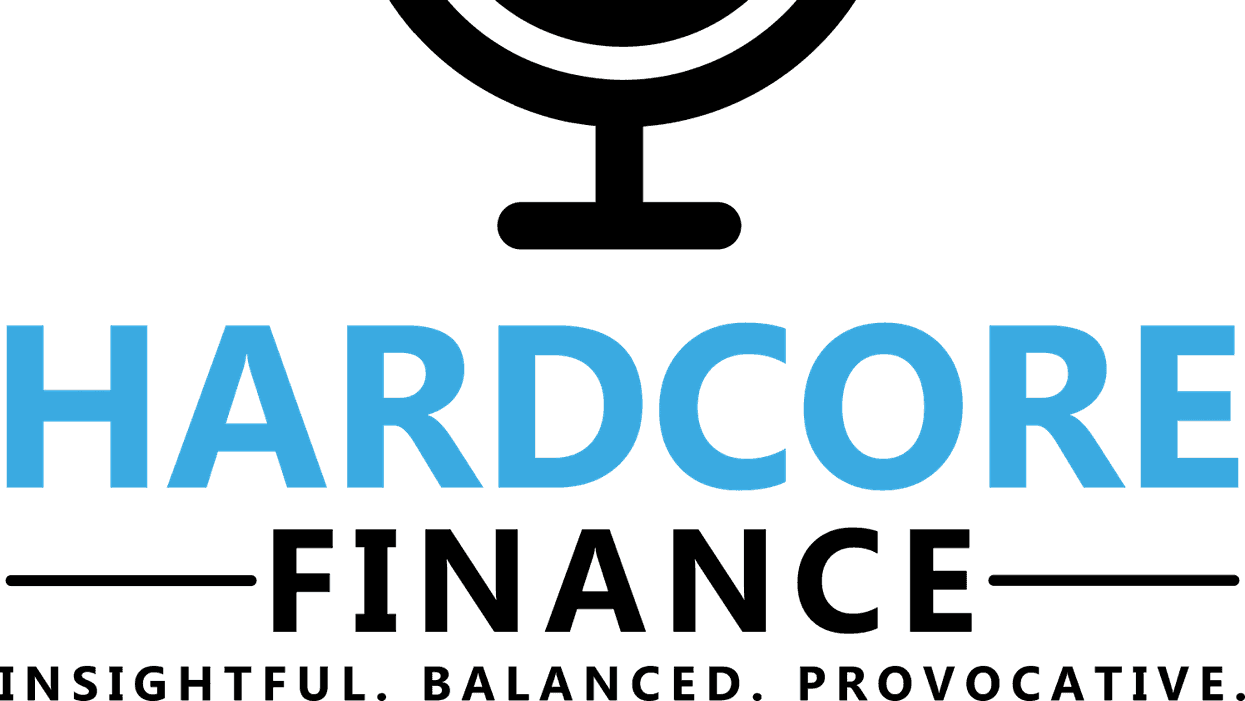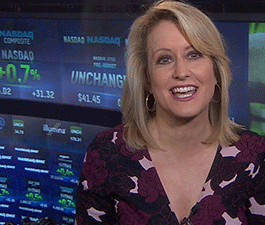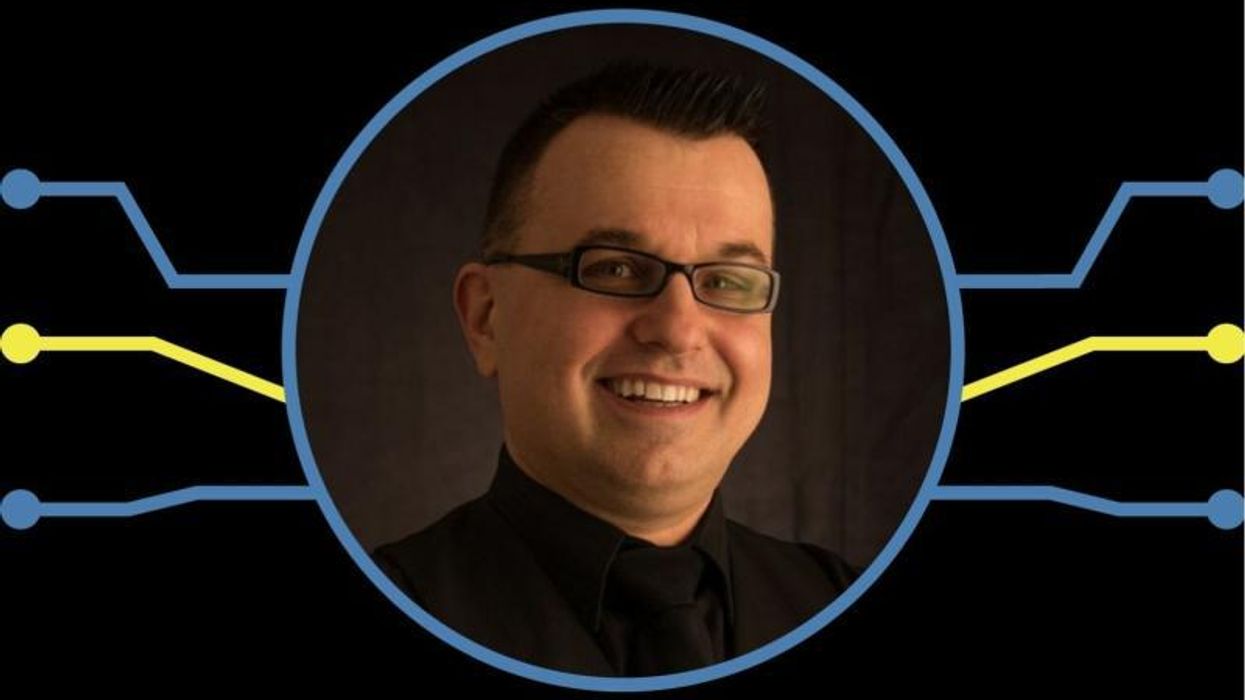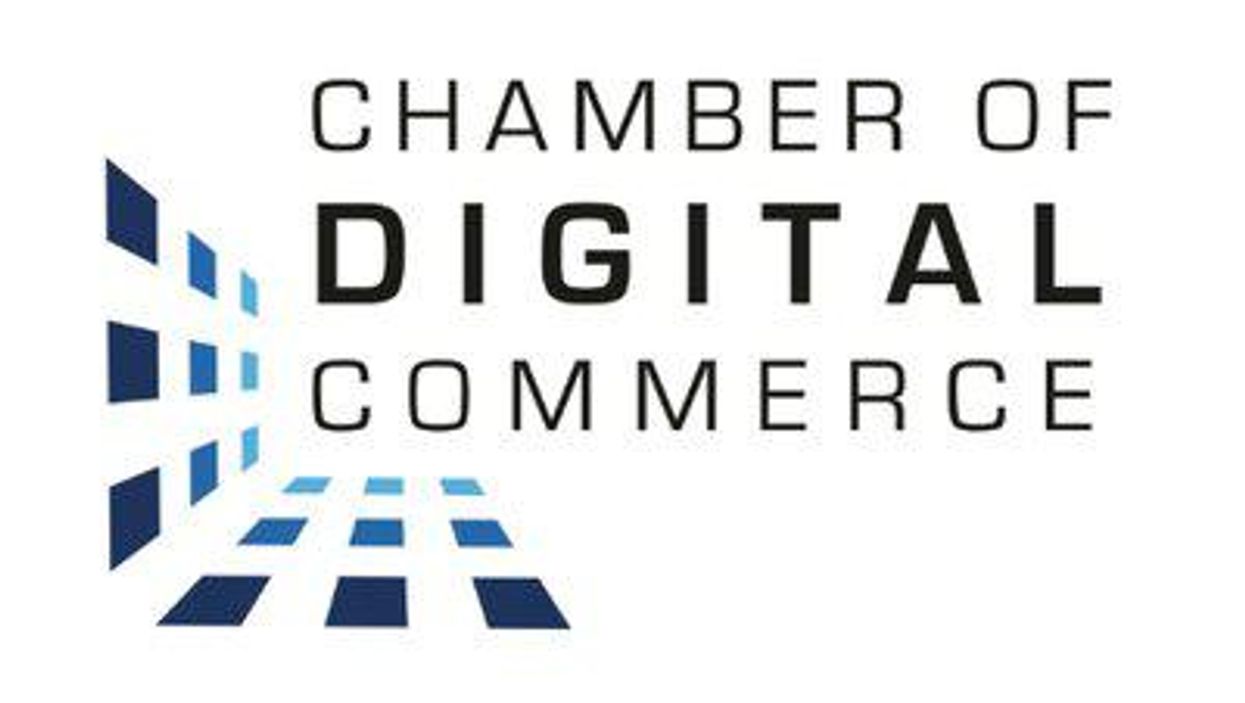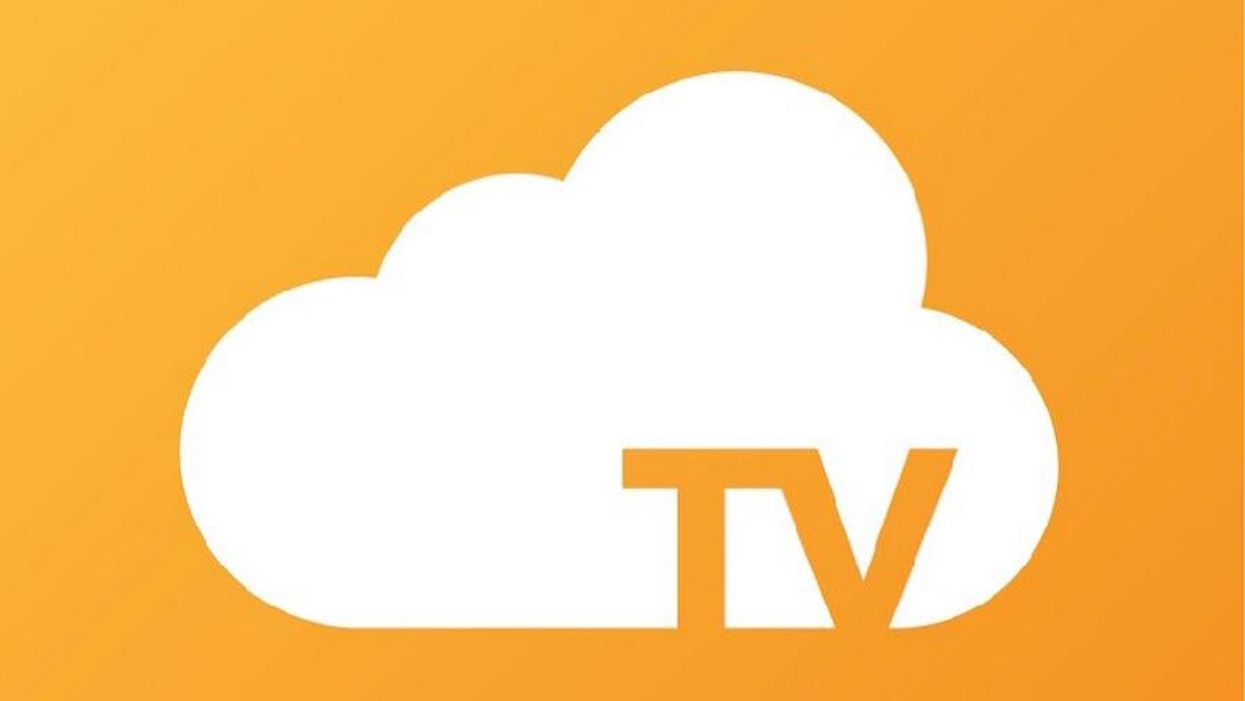Blockchain Futurist Conference 2025 | Beyond the JPEG: The Real Future of NFTs | Toronto
Presented at Blockchain Futurist Conference 2025 in Toronto – Canada’s Largest Web3 Event To learn more about Blockchain Futurist Conference and get tickets, visit futuristconference.com
🎙 Featured Panelists: Moderator: Julie Lamb, Founder, NFT VIP, Anwuli Okeke, Founder, Ilunafriq, Kenn Bosak, Host, #NotAnotherBitcoinPodcast, Wasim Ahmad, Vault12, Maheen Aqeel, Founder, Journey Studio
Follow Blockchain Futurist Conference on Social:
Twitter: @futurist_conf
Instagram: @untraceableinc
LinkedIn: blockchain-futurist-conference*** Special Offer for Podcast listeners ***
Promo codes for Vault12 Guard
The iOS codes are good for 1 year subscription at no cost, then will revert to standard price for Inheritance plan. iOS codes can be redeemed in the Apple App Store.
The Android codes are good for 90 days subscription at no cost, then will revert to standard price for Inheritance plan. Android codes are redeemed when selecting and paying for the Inheritance plan in the app.
Instructions for how to redeem here.
Code: FUTURIST25
iOS: https://apps.apple.com/redeem?ctx=offercodes&id=1451596986&code=FUTURIST25
Android: Enter code FUTURIST25 when you select the Inheritance plan

Featured Panelists: Moderator: Julie Lamb, Founder, NFT VIP, Anwuli Okeke, Founder, Ilunafriq, Kenn Bosak, Host, #NotAnotherBitcoinPodcast, Wasim Ahmad, Vault12, Maheen Aqeel, Founder, Journey Studio
Transcript
MC:
And now the moment you've all been waiting for the absolute best panel besides the one that I was on, obviously the best panel here today. This is about NFTs and I'm excited to have Julie mod this one. Our next panel dives deep into what's really next for NFTs. I told you there's big things coming beyond the art, beyond the hype and JPEGs, beyond the jpeg, the real future of NFTs explores how this tech is evolving into something far more powerful. Moderated by my friend Julie Lamb, joined by Anne Wooley, my guy Ken Boza, Maheen, and Anthony. This group brings bold perspectives of where NFTs are headed next, please put your hands together for the NFT panel. Let's go. Let's go. Alright. Alright.
Julie Lamb:
Oh yeah. Oh, oh, look at this. Holy, I almost went by Maheen Wasim. Ken, great to see you. We have one more, one more panelist. I know she's heading up here soon we'll get her to come up on stage on Wally, are you close by? There she is. We'll bring her up on stage. Oh yeah, the best. Bringing up the best in the rest, coming up from the backside, you guys, I'm really excited to host this panel. I'm Julie Lamb. I am the founder of N-F-T-V-I-P. We're an immersive ticketing solution and I have been in the trenches for a while now, I would say almost 10 years. And I love the excitement that comes out of digital assets. So I was asked to moderate this panel. I'd love for everyone to go down the room and we'll start on the far side on Wally, will you say you are who you are and what your company is?
Anwuli Okeke:
Sure. Very nice. Can everybody hear me okay? I got you. I treat
Julie Lamb:
You. Let's see. Thank
Anwuli Okeke:
You. Can you hear me? Yes, I can hear myself now.
Julie Lamb:
Nice.
Anwuli Okeke:
Well, very nice to be here. Thanks again for having me. My name is Am Yoki and I'm the founder of Eluna Freak. We're an NFT aggregation platform. In other words, what we do is we unify your entire NFT presence across the entire landscape, across multiple blockchains and marketplaces into one space, making it easy for fellow art enthusiasts, your fans, institutional investors, and even collectors to find you to discover and also trade NFTs directly.
Kenn Bosak:
Hi, how goes it? Oh, mic check. I'm Ken Boza. I got into crypto in 2015, started a podcast. Can we trade it again? All right, well just throw that one away. So yeah, how goes it? I'm Ken Boza. I got into Bitcoin in 2015 and I started a podcast in 2016 called not another Bitcoin podcast. Quit my day job, started traveling the world in 2017. Been to hundreds of conferences, interviewed, you name them, I've interviewed them. And right now I'm working with Bitcoin. Ben, does anybody here know who Bitcoin? Ben is? Bitcoin. Bitcoin. Ben Bitcoin, yeah, yeah, yeah. We're opening a club in Vegas. He has a bunch of crypto clubs around the country. So if you're in Vegas next week or so for the Bitcoin conference, just do a quick search. You'll find us near the Strat. We're opening up a Bitcoin Benz Crypto Club in Vegas, and I'll be working there throughout the years.
Wasim Ahmad:
Hi everyone, I'm Wasim Ahmad. I'm one of the co-founders of Vault 12. We are the pioneers in crypto inheritance. So we're going to talk about how amazing NFTs are and what does life look like beyond the jpeg. And so what we do is make sure that those same emotionally connected pieces of art and have a life beyond your own life.
Maheen Aqeel:
Hi everyone. My name is Mahe and my artist's name is Mahe Blues. So I started as an artist, very simple, and I was new in the space, but I kind of evolved into, I started building the community and then from there I started hosting events, spaces, a lot of those things that led me to kind of start my own studio, the Journey Studio and what we do different in the Journey studios, like we bring art and music together and create these immersive experiences and we host these events just to give a platform for emerging artists where they can showcase their art and also for people who are there to enjoy music and enjoy the event.
Julie Lamb:
Since our topic of the panel is beyond the jpeg, I'm going to start on the far side here. We had had this conversation earlier today about being an NFT aggregator. Can you share a little bit into the future on Wally, what beyond the JPEG means for you and your company and how you can let us know where you see the few?
Anwuli Okeke:
Yeah, definitely. So I think that million narratives have often oversimplified NFTs and what they represent. So for instance, today tokenized real world assets are the major driver of the NFT market. In other words, luxury collectibles and their tokenization are a major driver of NFTs. But beyond that though, definitely see a situation where blockchain technology becomes the backbone of the internet, similar to how TCP IP protocols are today. And then beyond that, NFTs also, they also have a use case beyond artwork. So when people hear NFTs, they're very synonymous with art. But NFTs have a use case in healthcare governance, digital identity and ownership education and so much more the ai, the metaverse, and so much more. For instance, NFTs are being used right now both in our industry and both as an aggregator. NFTs are being used as co-ownership for intellectual property and also in medical research to reward medical participants in supply chain.
They're being used for provenance of pharmaceuticals and medical devices and security. They're being used as access to digital or even physical assets, for instance, smart cars, smart homes, and more. So I can keep going on and on, but because we're an NFT aggregator, I almost feel as though we're on the forefront of that evolution of NFTs because different use cases keep popping up as to how NFTs can be used. For instance, in healthcare, they're being used for the secure provenance and transmission of patient health records. So I'll just stop there and just pass it over to my fellow.
Julie Lamb:
I think that's a really exciting thing to talk about. For me, the idea of these real world assets, right? Healthcare and NFTs or JPEGs. If we go past that, I think you said something important about your intellectual property rights. With our NFT immersive ticketing, we work with Beyonce and Santana with Poison, and Brett Michaels and a couple of celebrities are slipping my brain right now because I'm so mesmerized by the crowd here. But with Dee Snyder from Twisted Sister, they're doing a whole conference in Yellowstone, Wyoming. And as artists, they want to be able to keep these intellectual property rights within their fans and then pass that down to their heirs and their heritage. So I think we're all in this room as builders. Speaking of being in the room and being builders, can you and I have been in a lot of rooms, a lot of rooms all over the world, right?
Kenn Bosak:
Yeah. All over.
Julie Lamb:
So you've seen a lot in the past. I'm going to ask you to be a bit of a fortune teller right now. Tell me where you see where we are going to go beyond the jpeg, what you see as the future trends since you're digging in the dirt, you've been to hundreds of conferences
Kenn Bosak:
And I guess a little insight onto the NFC side of things or NFT side of things is why I'm here is I've actually sold over a million NFTs, but I did that for a dollar each. Everybody was selling NFTs for $10,000 or 69 million. And I was like, I bet I could sell a million of them for a dollar. And I did. It was only a dollar, you know what I mean? Who doesn't have a dollar? So coming from that perspective, I got into the NFT space a month after crypto kitties and stuff like that. So this is something I've always kind of thought like and would hope by this point we would've seen this, but the utility of it, some of the cool, I mean obviously things that come across my peer view is there's cannabis companies that are using NFTs as rewards, buying the packaging.
Packaging has become really big in the cannabis industry. The crazier the packaging, the more you can sell an eighth for, even though it's still 20 bucks in there, the packaging is now why you can sell it for 50. Well, they're adding an NFT to that packaging and now they're able to sell it for a hundred dollars for the same thing. That would only be 20 bucks without all that flare to it. And then there's a product out there called polka dot bars, those mushroom bars that everybody loves. They're using NFTs to verify that that's their product and not a knockoff. So if you go to a gas station and you're getting a polka.bar, they're using NFTs to verify and validate that you got a legit product, not some knockoff like yeah, you could copy their whole collection, make a knockoff of the product and mint NFTs to it.
But when you look at the blockchain, the issuer is in polka dot. It's just they really went out of their way to try and knock it off. But you can always go back to the blockchain to prove it's authentic. So for me, I think clothing brands are really going to get in on stuff like this. Like Supreme, if you want to take a white t-shirt and sell it for $500 more than you already are, put an NFT on it. You can prevent a lot of back alley bootlegging and stuff like that. And then the utility things, we're going to see people appreciate the Bob Ross art on their visa, but they value the utility that Visa gives them with that art on it. And I think that we have to start giving utility to bring value to the art that we appreciate. On the NFTs.
Julie Lamb:
One thing at N-F-T-V-I-P, we've developed a nap. It's like an NFT app. It allows you, as the owner, let's say, of a concert ticket, you're going to go see Beyonce. And Beyonce now allows in her VIP tickets, soul bound remixed albums that you can only listen to if you had been a ticket holder or an NFT holder of that current event. Now let's say that I have children and I'd like to pass that soul bound ticket onto my kids, but I'm not really quite sure how to do that. And so my next question is for Wasim. I think what's really interesting is with all of the amazing digital assets that we've collected, why do we need to worry about setting up a legacy and inheritance for our heirs or family members?
Wasim Ahmad:
Well, thank you for that question. I mean, it's really clear from what you've already heard on the panel that in just a few short years, NFTs are basically the most interesting thing on the blockchain. And I love have a Banksy fractional Banksy. I love it. I love it. I have an emotional attachment to this and you better believe that it's one of my nieces, or actually I have four, so each of my nieces and nephews are going to get one. And so I need to make sure that that can be passed on. And I'm not just talking about the print that goes with this, but the actual digital representation of it and the ownership of those pieces. So if you don't think about how you're going to pass on your digital assets, whether it's artwork, whether it's an access token, whatever it happens to be, it's going to get lost. So you need a way to record from your wallet how to access that wallet in the event that you have passed on. So it is something that people don't think about. 35% of men will sort out a will, 65% of women. So it's not necessarily something that everyone thinks about, but you have to do it upfront because no one is going to do it for you. Will you
Kenn Bosak:
Bring us, if I could add to that real quick though, is something that people don't think about as everything that he mentioned was for individuals, but this goes so much deeper for enterprise. If you want to see institutions getting into this, you're going to want to see acquisitions being able to hand off their NFT allocations in a way that's reasonable, not just, here's the private key. Trust me, I didn't back it up, bro. So this is really important for enterprise solutions as well. If the CEO dies and takes that private key with them, what's the company going to do?
Julie Lamb:
Yeah, you bring up a good point. This interesting. I don't have children that I'm passing on to, but I do have three family members that don't speak to each other. So in my untimely passing, they each have to come together one time to make a decision of what they're going to do with my digital assets, sell, hold, move on now being an artist, we met last year here on the stage at the Blockchain Futurist conference, and not only are you an amazing artist, you also did digital assets last year and this year you're doing so much more. So with the current shift in NFT space, how are you applying those skills and experiences that you gained from NFTs into your life or the work that you're doing today? I'm so excited to hear your answer.
Maheen Aqeel:
Yeah, that's a great question. Thank you for asking. So I feel like NFTs have given us this platform where we can foster real connection and build communities with artists, creators, developers, and everyone who's doing different things. And it has kind of given us this ecosystem where I feel like collaboration is more doable and it's more appreciated. And I take that knowledge, that experience, and that amazing sense of community that we had from those experiences and apply that today in the work that I do, building the Journey Studio where I know that I have the community that came from the NFT community. I know that we have the artists that came from the NFT art space, but they're also digital artists. So what we are trying to do is we host events where it's not only about digital art but also music and create this different immersive experience where I think everyone enjoys and is like jokingly.
I'm just saying that it's like web four because we are kind of like, I don't think we can ever forget what NFTs have done for us. And NFTs still exist, but we can also apply that same knowledge, same technology, and do something different depending on what's in demand and what people are liking and what's the hype. So that's what I try to do and I like to thank the community they're all here. Also, shout out to the futurist conference because I'm one of the curators for the arts that you see alongside the Gold Gallery and Shelly, my friend. So we are all curators and we brought art in the tech world. So that's like itself is an evolution for NFTs. And now we are doing more with these events that are with music because I feel like people enjoy that more. And I don't know, maybe there is something next, but we'll just find out with time.
Julie Lamb:
Well, speaking of something next, I want to dial it back in on Wally. When you mention NFT aggregator for someone like me, I understand the word, but will you give me a 1 0 1? What you mean by that? What is the use case for that, just so I can completely understand?
Anwuli Okeke:
Sure. Definitely.
Julie Lamb:
Oops. Well there goes that mic. If it wasn't dead yet, it's dead now.
Anwuli Okeke:
Yeah, sure. So I would say a synonym for aggregator is consolidator. So in other words, the ecosystem is quite fragmented. You have a myriad of blockchains. You have e Aram, Terra Solana base, and then you have marketplaces that are built on top of these blockchains. You have open sea blur and many times you have silos. They don't quite talk to each other. And as NFT artists, it's usually the case where you have your digital assets on more than one blockchain. In fact, it's encouraged. God forbid if one blockchain goes down, you still have access to some of your digital assets. However, it makes it quite difficult for anyone to find you or even get an understanding of your journey and evolution as an artist, it makes it very difficult to see your entire portfolio holistically. So let's say I'm a collector and I want your art or I want your art.
Where do you send me now if you're going to send me to 5, 6, 7 multiple places to find you, you're going to lose me and you're going to lose the sale. And then God forbid, your name on each platform is quite different. So I have to hop onto open, see, find you as goat, and then I have to hop onto X and find you as whatever, and then hop onto another platform and find you as whatever you're going to lose the sale. And so what we've done is we bring your entire presence across the entire blockchain. It doesn't matter the platform, it doesn't matter the blockchain, it doesn't matter the marketplace. We bring it all into unified space. That way people can discover you and then they can buy from you directly. It's as simple as that.
Julie Lamb:
I mean, you bring up a current people talk about the bull market, people talk about the bear market, and Ken, you touched on this and you're talking about on Wally bringing it down into one place. And then you mentioned Ken about enterprise solutions and taking it and casting the net wide. It's almost like we're talking about being builders here, right? We're building and we keep building. It's already been built and we keep building on top of it. So do we go wide or do we go narrow? Ken?
Kenn Bosak:
I think narrow is the solution. I think we're, this is like a paradigm shift for mom and pop solutions or businesses to become enterprise level competitive. The same opportunity that arose with the internet and website domains. There was mom and pop shops that run the world now because they were early to the internet. And same thing with diner club card. A lot of companies could credit their success to being status symbols because they were there for diner club card people to spend their diner club money. You know what I mean? We're the next diner club card. If you don't accept Bitcoin, you're just telling people with money, you don't want their money. So I think casting the net wide would be overshoot. We've been overshooting for a decade plus now it's not working. I think we need to dumb down the tech. And that's what's been happening.
That's why you've seen NFTs lose value. I say it's because it's been easier to do. NFTs had value when it was hard. The same thing with token launches. They were valuable when they were hard. Now it's so easy, your five-year-old can do it better than me, and I've been doing this forever, right? It's almost intuitive for them. You're seeing kids minting, nft. So it became so easy, it took that value, that sweat equity that went into the launch of an NFT. So I think narrowing it down and showing mom and pop businesses that are small pizza shops, coffee shops or even supply chain shipping and stuff like that, showing them how they could use this technology because it has become so easy. We're almost at GoDaddy esque domain building for this blockchain utilization for either iot tracking, RWAs, anything. So it's the narrowing it down and showing how that pizza store can make Papa John's sweat.
Julie Lamb:
Well, you actually brought up an interesting thing when you mentioned narrow it down when it comes to, I go back to the artists maim when I say this at Wild Bill days with Brett Michaels and D Snyder, we implemented a new policy with our tickets. If I were to give a couple of my friends tickets or give them a code to get a ticket, I can get a reward system much like Diners Club, much like traveling on an airplane or staying in a hotel. Why can't we be rewarded for sharing this information with our friends or our colleagues or fans? When I go to a concert, I don't want to go by myself. I go with at least one person, if not a few. So it really is an interesting way how artists can maintain their IP rights. Now, what was interesting, I want to go back to legacy and heritage because we don't always think about end of days for us, but what we're building now is going to last forever through generations and generations. So I want to know, I can ask you a whole lot of questions Wasim, but since we only have a few minutes left, what are some of the stories? Is there a story that really sticks out to you about legacy? And I know I put you on the spot here, but a legacy or an inheritance story. I don't want to throw you to the wolves.
Wasim Ahmad:
So there's the real life story of a trader who creates a new wallet, puts a digital asset in there and writes down the credentials for the wallet, the seed phrase or the crypto key on a post-it note and then proceeds to eat his hamburger or whatever it is that he was eating. And then his dog jumps up and eats the post-it note, which is now nicely covered in ketchup. And so that wallet is gone. He didn't back it up any other way. So you just want to make sure you back up, back up your wallets that have your NFTs and your other digital assets and then ultimately for inheritance. The other stories are too sad. I don't want to talk about
Kenn Bosak:
That. I would recommend your friend try hypnosis. I know I would.
Julie Lamb:
I mean this is literally a story about the dog ate your homework, right? I know we only have a few minutes left. I, I had a question for you. You tapped on this a little bit, but in what ways, how has being a part of the NFT ecosystem helped shape your current plan would?
Maheen Aqeel:
So the plan is basically to take the knowledge that I talked about, right? The experiences, the community and grow from there because everything keeps changing. So what I was doing last year is completely different from what I'm doing right now and I don't even know what I'm going to do next year. It's just that
With what we have today, we have the artists, we have the community, and not just artists from Toronto but artists from all around the world. We try, I'm trying to figure out a way where these artists get rewarded or paid in some sort of way for what they do because so many times we've used their work in our curations and they take time to make that art and they're happy that their work is on the screen and on the display and everything and they're very content with it. But I as an artist feel like there's more to it, there's more opportunity. So these days raves are hard. People want to go and a couple of my 3D artist friends who are doing really great work, they're getting paid. So I'm trying to find something where we can have their work that was once in NFT and a digital art to be displayed and played while there's a rave going on or there's a show going on and there is a concert going on because it does have value,
Anwuli Okeke:
But
Maheen Aqeel:
I'm still working on it. I'm still young and I'm still finding ways and open to collaborations, open to anything. But I think every day or every month we're moving forward. So that's great news.
Julie Lamb:
Well, I feel like you guys were just part of something. I feel like there could be something between Maheen and I when it comes to collaborating right now. I don't mean to use you guys as the potential of me. So use this as an example. If you are sitting next to someone and you don't know who they are, connect with them, get their socials, find out. And just to close out really quickly, how can we find each one of you? So on Wally, how can we find you? What's your favorite social
Anwuli Okeke:
X and on all social media platforms, our name is the same because we have a unique name. So it's a Luna Freak everywhere, LinkedIn, Instagram X and everywhere else. Telegram as well.
Julie Lamb:
Ken, I know you have a few pseudo names out there
Kenn Bosak:
Are yours. Just Google Ken with two Ns and then NFT or Bitcoin or whatever. I'll pop up. I guarantee it.
Julie Lamb:
Wasim,
Wasim Ahmad:
Oh, I'm was a pretty much everywhere, but X is pretty good.
Maheen Aqeel:
I'm mine Blues. So you can find me on X and Instagram, same name. I only use LinkedIn to update about these events, so don't judge me. I need some of it. So these are the two platforms.
Julie Lamb:
I know I'm old school too. Maybe that's why we like each other. I'm on LinkedIn, I'm on X, I'm on all of them, but you can find me, Julie Lamb on LinkedIn. Super easy to find. There aren't many redheaded. Julie Lambs, there's a few of us out there, but thank you so much. Blockchain futurist. I hope to see all of you guys in Miami in November, November 5th and sixth, the next conference that's going to happen. So we'll see you in the States. Thank you so much to our crew, our manager, our AB team. Big round of applause for my panelists here on stage. Thank you so much. Can we get a group picture? Will you take a group picture of us? Awesome.
MC:
Great job. And I feel like this is something we've had to do all day long. Y'all can do better than that with the applause. I know that you can. Thank you. Oh my God. See it's not that hard.
Julie Lamb:
Cool.
Maheen Aqeel:
Thank you so much. Thank you. Thank you everyone.
MC:
Alright, well we're just going to go, we'll go wireless for the rest of the thing. Alright, that's it guys. Thank you so much. Blockchain, futurist, eat Toronto, eat Women. We did it all. How? What an amazing time we had. I want to say thank you. Not only to every single one of you in this space, I want to thank my AV team. I know Julie said it, but I got to do it too. My camera guys, my sound guys, thank you so much. My stage manager, the runners, everybody. Thank you for being here. Eat Toronto. We are closing out. Don't forget tonight. Here is the bit yet. Wallet mixer. You can find that here at the design exchange. So I believe seven o'clock is when that starts. So thank you that Thank you to all of our platinum sponsors. We got the big AT Wallet. We got Coin As you see the branding on the Chairs, secret Network and ZDKL. Thank you all so much and we got some gold sponsors. Let's go. Coinbase, DeLorean, polymath. Nexa Paper BVI Finance acronym Coin Bound, LTD. To can Silence Swap my guy, Rainmaker Youi, Kae, cryptocurrency, wire Gen ZO, blockchain North in Anvil. All right guys, we are signing out from Blockchain Futurist Conference here in Toronto. We'll see you in Miami.
Blockchain Futurist Conference 2025 | Beyond the JPEG: The Real Future of NFTs | Toronto

Wasim Ahmad
Wasim Ahmad is a serial entrepreneur and an advisor in the fields of AI, blockchain, cryptocurrency, and encryption solutions. At Vault12, the pioneer of crypto inheritance, he led private and public fundraising efforts and focuses today on expanding the Vault12 ecosystem. In addition, he is a producer of the upcoming movie 'The Bitcoin Executor'.
His crypto experience began with AlphaPoint, where he worked with the founding team to launch the world's first crypto trading exchanges. Previously he was a founding member of Voltage Security, a spinout from Stanford University, that launched Identity-Based Encryption (IBE), a breakthrough in Public Key Cryptography, and pioneered the use of sophisticated data encryption to protect sensitive data across the world's payment systems.
He has also been very involved with regulatory initiatives in both the US and the UK, providing feedback to the SEC and FCA respectively pushing for expanded momentum for innovation and startups within the regulatory frameworks of both countries.
Wasim served on the board of non-profit, StartOut, and is a Seedcamp and WeWork Labs global mentor.
Wasim graduated with a Bachelor of Science in Physics and French from the University of Sussex.
